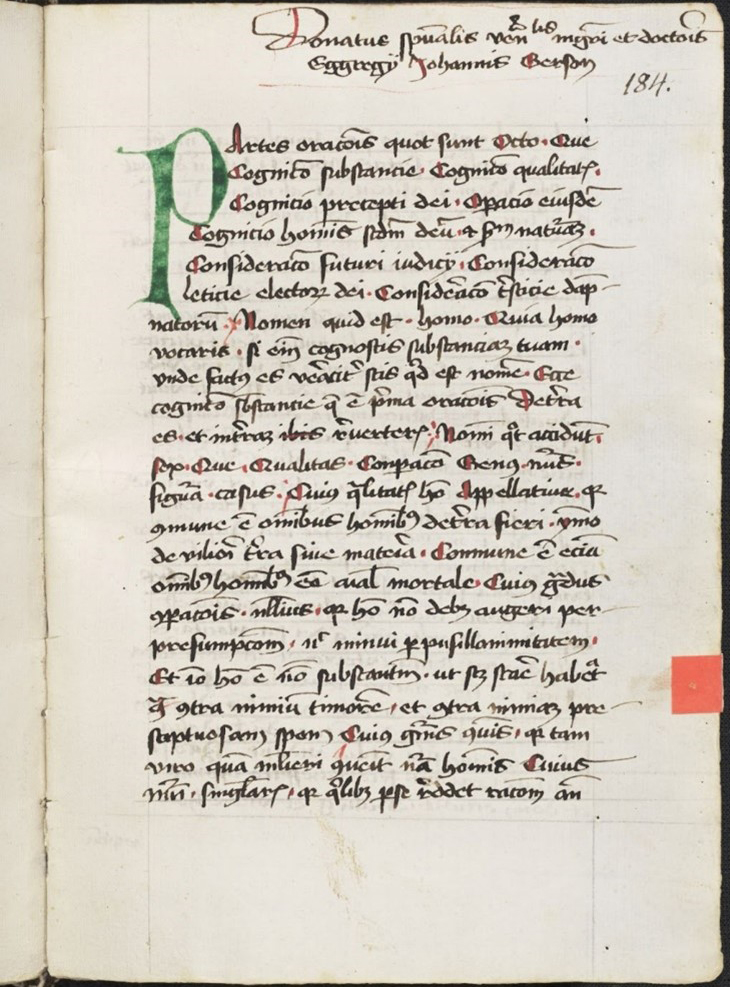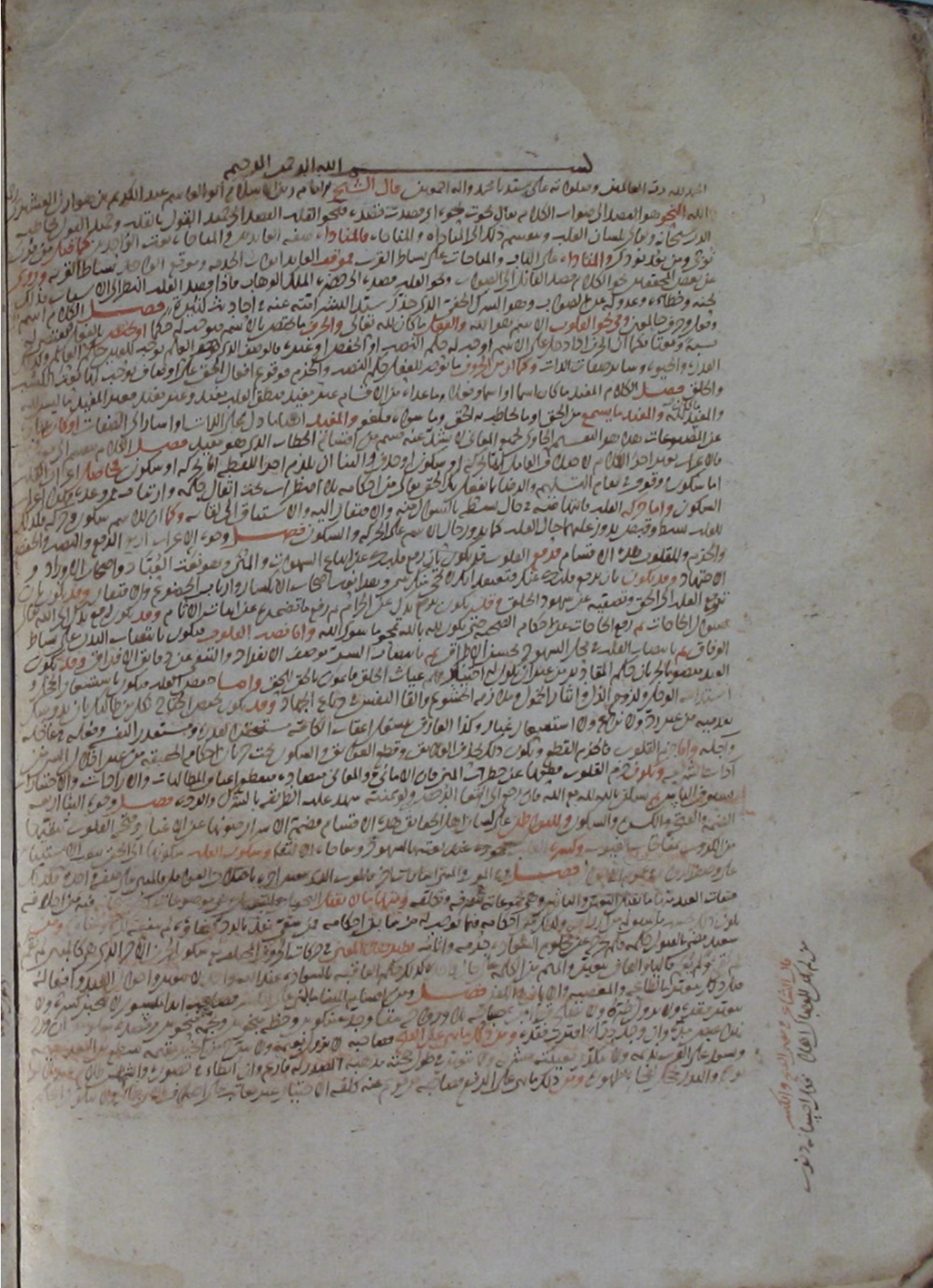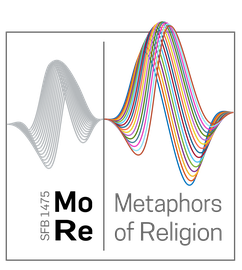Subproject C01
Grammar as a Religious Metaphor

The subproject C01 “Grammar as a Religious Metaphor” is dedicated to grammar as a source domain for religious metaphors. Grammarians used metaphorical language already in ancient times to explain linguistic phenomena. Many of these metaphors became established as fixed grammatical terms and thus became lexicalized metaphors. The jurisprudent Abū l-Qāsim al-Qušayrī (986-1072), who flourished in Nīšāpūr (a city in present-day Iran), and the French theologian and mystic Jean Gerson (1363-1429) take up such lexicalised metaphors in their oeuvre in order to interpret them in a spiritual context and thus revitalize them. For example, in his Donatus spiritualis, a mystical-spiritual interpretation of Donat's ancient elementary grammar Ars minor, Jean Gerson interprets the Latin term casus, which in its basic meaning means a spatial falling down, as a 'fall' (From which case (= 'fall') is the word 'peccator' (= 'sinner')? From the 'fall' from the state of innocence into the state of guilt) and according to the six Latin cases he names six cases (partial steps) until a sin is finally committed. In his book Naḥw al-qulūb (The Grammar of Hearts), Abū l-Qāsim al-Qušayrī also interprets the case in a religious sense. The word used in Arabic for the nominative - rafʿ - means both 'to lift' and 'to remove.’ Accordingly, he writes, The nominative of hearts could happen by removing your heart from this world; this is the characteristic of ascetics. In addition to the writings just mentioned, the subproject is based on other pre-modern texts in Latin and Arabic language.
The aim of the project is to demonstrate by means of the conceptual metaphor theory of George Lakoff and Mark Johnson how metaphors, which derive from the source domain ‘grammar,’ serve to create religious meaning in the aforementioned texts.
Donatus spiritualis (Spiritual interpretation of Donat)
Responsible person: Johannes Steinbach
With his treatise Donatus spiritualis, the French theologian and scholar Jean Gerson (1363-1429) joins the centuries-long reception of the ancient grammarian Aelius Donatus (c. 310-380) by adopting the formal layout of Donat's Ars minor, an elementary grammar intended for young students, and by interpreting grammatical terms listed there (e.g., casus, declinatio, gradus comparationis) spiritually in order to explain Christian actions of human beings - both in terms of the Christianity and the Christianity of the world. Grammar orders language and in this respect is fundamental to the success of verbal interpersonal communication and thus of human life. While Donat was obviously interested in a sober, systematic analysis of the functioning of (Latin) language, Gerson's Donatus spiritualis suggests the interpretive approach of viewing the practice of Christian faith, such as the practice of charity, as a non-verbal, universal interpersonal communication medium through which human life can ultimately flourish.
 The goal of the research project Donatus spiritualis is to produce a text-critical edition and translation, including a thematic introduction and commentary, since Gerson's Donatus spiritualis has so far been the subject of only superficial research. Accordingly, neither a text-critical edition nor a German translation is available. In particular, it should be determined how Gerson's treatise can be placed in the historical context of the spiritualisation of grammar: Virgilius Maro Grammaticus (Epistolae, Epitomae) and Smaragdus of Saint-Mihiel with his Donatus commentary can be regarded as the first precursors, but the concrete genre-specific models of Gerson, if they exist, have yet to be determined, for which purpose as many medieval Donatus commentaries as possible should be examined. For the time being, it can only be stated with certainty that Gerson's tract is not an isolated case of a spiritualization of Donat, but that there are other tracts from Gerson's time that have been handed down as Donatus spiritualis, which are based on Donat's grammar(s) (Ars minor, Ars maior). Thus, it also remains to be explored whether and, if so, what connections exist between all these surviving tracts, how widespread this kind of Donat reception was in Gerson's time, and whether the spiritualization of Donat could establish itself as a text genre of its own, for instance through Gerson's tract.
The goal of the research project Donatus spiritualis is to produce a text-critical edition and translation, including a thematic introduction and commentary, since Gerson's Donatus spiritualis has so far been the subject of only superficial research. Accordingly, neither a text-critical edition nor a German translation is available. In particular, it should be determined how Gerson's treatise can be placed in the historical context of the spiritualisation of grammar: Virgilius Maro Grammaticus (Epistolae, Epitomae) and Smaragdus of Saint-Mihiel with his Donatus commentary can be regarded as the first precursors, but the concrete genre-specific models of Gerson, if they exist, have yet to be determined, for which purpose as many medieval Donatus commentaries as possible should be examined. For the time being, it can only be stated with certainty that Gerson's tract is not an isolated case of a spiritualization of Donat, but that there are other tracts from Gerson's time that have been handed down as Donatus spiritualis, which are based on Donat's grammar(s) (Ars minor, Ars maior). Thus, it also remains to be explored whether and, if so, what connections exist between all these surviving tracts, how widespread this kind of Donat reception was in Gerson's time, and whether the spiritualization of Donat could establish itself as a text genre of its own, for instance through Gerson's tract.
Naḥw l-qulūb (The Grammar of Hearts)
Responsible person: Dr. Vicky Ziegler
With the “Grammar of Hearts,” the Muslim jurist and esoteric Abū l-Qāsim al-Qušayrī, who flourished during the 11th century, presented a unique rulebook of classical Sufism, in which he transfers grammatical rules of Arabic language, which is considered sacred by Muslims, to the pious lifestyle of a Sufi. Sufism is a religious movement within Islam that is often described as an ascetic movement associated with mysticism. The goal of a Sufi is to build a personal bond with God through ecstatic states for example.
The Arabic word for grammar used in the title - naḥw - is a lexicalised metaphor and originally meant 'direction' or 'way' in the sense of manner. Accordingly, the title can be read as both “The Grammar of Hearts” and “The Way of Hearts.” Al-Qušayrī explains at the beginning of his book that grammar is the way in the language to speak properly and the way of hearts is the way to speak with God. By the way of hearts, al-Qušayrī  specifically means the way of the Sufis, since the heart is considered the spiritual centre in Sufism. The 'grammar of hearts' thus stands for the spiritual path.
specifically means the way of the Sufis, since the heart is considered the spiritual centre in Sufism. The 'grammar of hearts' thus stands for the spiritual path.
The main concern of the research project Naḥw al-qulūb (The Grammar of Hearts) is to show how analogies are made between grammar and spirituality, and how grammar serves as a source domain to create religious metaphors. The theories of conceptual mapping and conceptual blending will be applied as a central method for annotating metaphors and analogies that occur in the text. Further aims of the project are to place the text in the Arabic grammatical tradition and in the history of Sufism, to reconstruct the textual history of the “Grammar of Hearts,” and to present a new text-critical edition of the Arabic text as well as a German translation. In addition, other pre-modern Arabic texts will be included, in which the seemingly incompatible domains of 'grammar' and 'spirituality' are combined.
The research project “The Grammar of Hearts” thus demonstrates how religious meaning making occurs through grammatical facts and, in particular, by means of metaphors, and thus sheds light on a scarcely researched area within Islamic Studies.
Affiliated Persons




